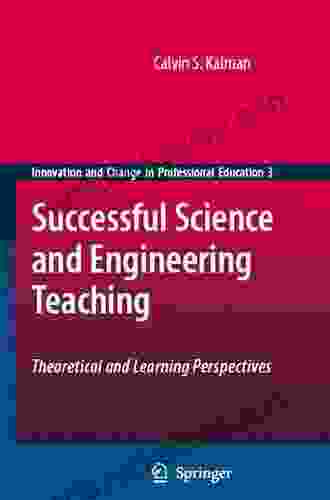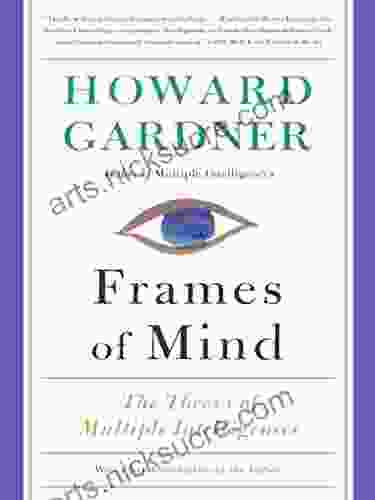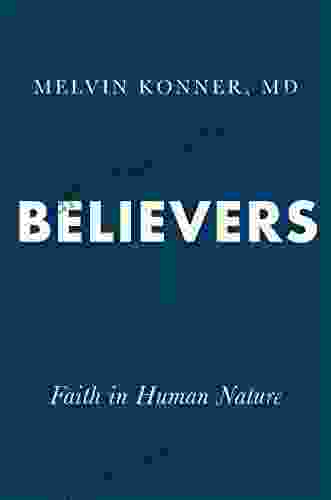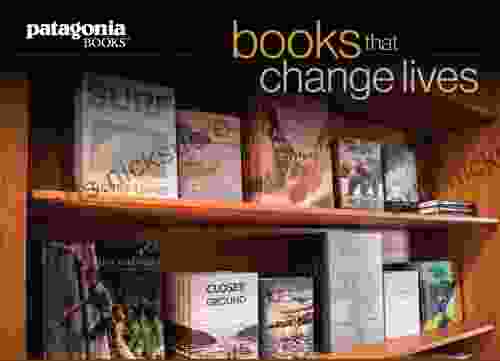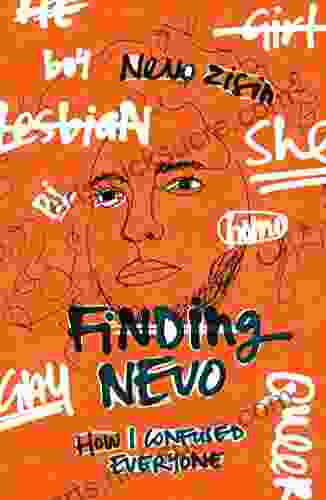Theoretical and Learning Perspectives on Innovation and Change in Professional Practice

Innovation and change are essential for professional practice in today's rapidly changing world. Professionals must be able to adapt to new technologies, new ways of working, and new challenges in order to stay relevant and effective. This article provides a comprehensive overview of the theoretical and learning perspectives on innovation and change in professional practice. It explores the key concepts, models, and frameworks that inform our understanding of how professionals can innovate and adapt to change in their work environments.
4 out of 5
| Language | : | English |
| File size | : | 5038 KB |
| Text-to-Speech | : | Enabled |
| Screen Reader | : | Supported |
| Enhanced typesetting | : | Enabled |
| Word Wise | : | Enabled |
| Print length | : | 290 pages |
Theoretical Perspectives
There are a number of theoretical perspectives that can be used to understand innovation and change in professional practice. These perspectives include:
* Organizational learning theory: This theory suggests that organizations learn and change through a process of experimentation, feedback, and adaptation. Organizations that are able to learn from their experiences and adapt to change are more likely to be successful. * Knowledge management theory: This theory suggests that organizations can improve their innovation and change capabilities by managing their knowledge effectively. Organizations that are able to capture, store, and share knowledge are more likely to be able to innovate and adapt to change. * Communities of practice theory: This theory suggests that innovation and change can be facilitated by the development of communities of practice. Communities of practice are groups of people who share a common interest or expertise and who work together to learn and share knowledge. * Action research theory: This theory suggests that innovation and change can be facilitated by action research. Action research is a process of research that involves practitioners working together to identify and solve problems in their work environments. * Reflective practice theory: This theory suggests that innovation and change can be facilitated by reflective practice. Reflective practice is a process of self-reflection that involves practitioners thinking about their experiences and learning from them.
These theoretical perspectives provide a foundation for understanding how innovation and change can occur in professional practice. They offer insights into the factors that can contribute to innovation and change, as well as the processes that can be used to facilitate innovation and change.
Learning Perspectives
In addition to theoretical perspectives, there are also a number of learning perspectives that can be used to understand innovation and change in professional practice. These perspectives include:
* Experiential learning: This perspective suggests that learning is best achieved through experience. Professionals who learn through experience are more likely to be able to apply their learning to their work. * Social learning theory: This perspective suggests that learning is a social process that occurs through interaction with others. Professionals who learn from others are more likely to be able to innovate and adapt to change. * Transformative learning theory: This perspective suggests that learning can be a transformative process that can lead to changes in a professional's beliefs, values, and assumptions. Professionals who experience transformative learning are more likely to be able to embrace innovation and change.
These learning perspectives provide insights into the ways that professionals can learn about innovation and change. They offer guidance on the types of learning experiences that can be most effective for facilitating innovation and change.
Innovation and change are essential for professional practice in today's rapidly changing world. Professionals must be able to adapt to new technologies, new ways of working, and new challenges in order to stay relevant and effective. The theoretical and learning perspectives discussed in this article provide a comprehensive framework for understanding innovation and change in professional practice. They offer insights into the factors that can contribute to innovation and change, the processes that can be used to facilitate innovation and change, and the ways that professionals can learn about innovation and change.
By understanding the theoretical and learning perspectives on innovation and change, professionals can be better prepared to navigate the challenges of today's rapidly changing world and to emerge as leaders in their fields.
References
* Argyris, C., & Schön, D. A. (1978). Organizational learning: A theory of action perspective. Reading, MA: Addison-Wesley. * Bandura, A. (1977). Social learning theory. Englewood Cliffs, NJ: Prentice-Hall. * Brown, J. S., & Duguid, P. (1991). Organizational learning and communities of practice: Toward a unified view of working, learning, and innovation. Organization Science, 2(1),140-157. * Mezirow, J. (1991). Transformative dimensions of adult learning. San Francisco, CA: Jossey-Bass. * Nonaka, I., & Takeuchi, H. (1995). The knowledge-creating company: How Japanese companies create the dynamics of innovation. Oxford, UK: Oxford University Press. 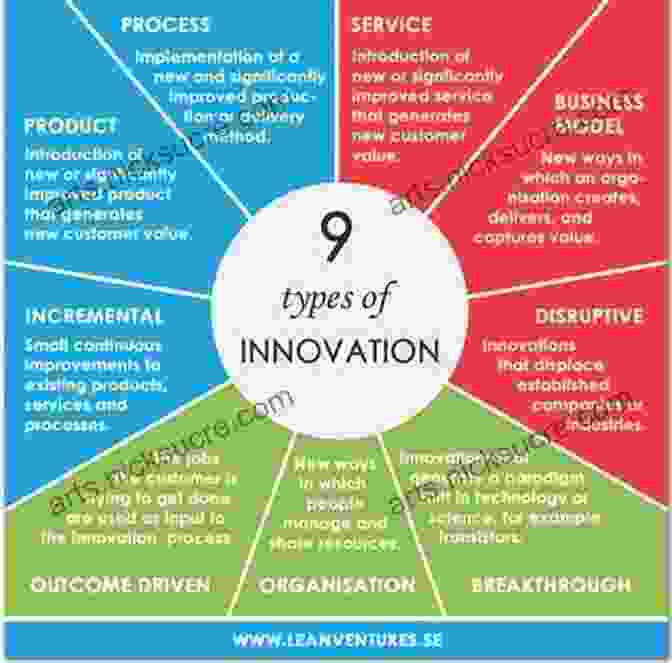
4 out of 5
| Language | : | English |
| File size | : | 5038 KB |
| Text-to-Speech | : | Enabled |
| Screen Reader | : | Supported |
| Enhanced typesetting | : | Enabled |
| Word Wise | : | Enabled |
| Print length | : | 290 pages |
Do you want to contribute by writing guest posts on this blog?
Please contact us and send us a resume of previous articles that you have written.
 Fiction
Fiction Non Fiction
Non Fiction Romance
Romance Mystery
Mystery Thriller
Thriller SciFi
SciFi Fantasy
Fantasy Horror
Horror Biography
Biography Selfhelp
Selfhelp Business
Business History
History Classics
Classics Poetry
Poetry Childrens
Childrens Young Adult
Young Adult Educational
Educational Cooking
Cooking Travel
Travel Lifestyle
Lifestyle Spirituality
Spirituality Health
Health Fitness
Fitness Technology
Technology Science
Science Arts
Arts Crafts
Crafts DIY
DIY Gardening
Gardening Petcare
Petcare Noson S Yanofsky
Noson S Yanofsky John D Mccann
John D Mccann James P Lewis
James P Lewis Ae Marling
Ae Marling Susan Rovezzi Carroll
Susan Rovezzi Carroll Barry Melrose
Barry Melrose Alexandra Horowitz
Alexandra Horowitz Timothy Malcolm
Timothy Malcolm Darrell Huff
Darrell Huff Letitia Baldrige
Letitia Baldrige Mary Roach
Mary Roach Barbara Mertz
Barbara Mertz Sam L Savage
Sam L Savage David A Whitsett
David A Whitsett Amy Blakeslee
Amy Blakeslee Nancy Mellon
Nancy Mellon Terrence W Deacon
Terrence W Deacon Dennis Cassinelli
Dennis Cassinelli David Mcraney
David Mcraney John Muir
John Muir Daniel Kahneman
Daniel Kahneman Joseph A Durlak
Joseph A Durlak Dale F Bloom
Dale F Bloom Herb Carnegie
Herb Carnegie Johnathon Allen
Johnathon Allen Marissa Anderson
Marissa Anderson Douglas H Macdonald
Douglas H Macdonald Hans Reichenbach
Hans Reichenbach Rick Sapp
Rick Sapp Pearl S Buck
Pearl S Buck Amelia Simmons
Amelia Simmons Melvin Konner
Melvin Konner Agnieszka Latocha
Agnieszka Latocha Terri Paajanen
Terri Paajanen Elizabeth Parker
Elizabeth Parker Michael Mcteigue
Michael Mcteigue Spike Walker
Spike Walker Sun Yung Shin
Sun Yung Shin David Blatner
David Blatner Brad Rock
Brad Rock Danny Wuerffel
Danny Wuerffel Adharanand Finn
Adharanand Finn Adrian Bejan
Adrian Bejan Thomas Pranio
Thomas Pranio Michael Bronski
Michael Bronski E Lockhart
E Lockhart Jorge Luis Delgado
Jorge Luis Delgado Afsaneh Moradian
Afsaneh Moradian Timothy Gowers
Timothy Gowers Jack Heinowitz
Jack Heinowitz Adriana Rabinovich
Adriana Rabinovich Adrienne Mayor
Adrienne Mayor Nicole Spindler
Nicole Spindler Elias Johnson
Elias Johnson Noah Michaud
Noah Michaud Alexandra Christo
Alexandra Christo Bobbie Ziemer
Bobbie Ziemer Rich Froning
Rich Froning Kenneth Martz
Kenneth Martz Gerry Lopez
Gerry Lopez Adele Westbrook
Adele Westbrook Matt Morton
Matt Morton Maurice Isserman
Maurice Isserman Oscar Ratti
Oscar Ratti Herbert Clyde Lewis
Herbert Clyde Lewis Linus Wilson
Linus Wilson Paul L Wachtel
Paul L Wachtel John Hillman
John Hillman Ben Marcus
Ben Marcus Adam Woodbeck
Adam Woodbeck Frank Delaney
Frank Delaney Bridget Bishop
Bridget Bishop Peggy Tharpe
Peggy Tharpe Mariel Hemingway
Mariel Hemingway David Sloan Wilson
David Sloan Wilson American Alpine Club
American Alpine Club James Mcdougall
James Mcdougall Wendy Heard
Wendy Heard Aubre Tompkins Cnm
Aubre Tompkins Cnm Nicholas Kardaras
Nicholas Kardaras Eric Hoffer
Eric Hoffer Lynne Kelly
Lynne Kelly Tony Grice
Tony Grice Gena Showalter
Gena Showalter Saidiya V Hartman
Saidiya V Hartman Susan Adams
Susan Adams Karen Weekly
Karen Weekly Andres Mooring
Andres Mooring Gene Hill
Gene Hill Cameo Renae
Cameo Renae Zachery Knowles
Zachery Knowles Lily Luchesi
Lily Luchesi Kevin Van Whye
Kevin Van Whye Timothy D Wilson
Timothy D Wilson Kirk Deeter
Kirk Deeter George A Morgan
George A Morgan Angel Millar
Angel Millar Master Sajid Ahmed
Master Sajid Ahmed Don Nehlen
Don Nehlen Kamala Harris
Kamala Harris Luca Vargiu
Luca Vargiu Adam Weymouth
Adam Weymouth Michael D Rich
Michael D Rich Gary R Miller
Gary R Miller Adrienne Tooley
Adrienne Tooley Katarzyna Wac
Katarzyna Wac Lisa Mosconi
Lisa Mosconi Adele Faber
Adele Faber Shami Stovall
Shami Stovall Doris J Barnes
Doris J Barnes Mel Levine
Mel Levine James B Marsh
James B Marsh Christopher Pike
Christopher Pike Kathy A Zahler
Kathy A Zahler Collins Easy Learning
Collins Easy Learning John Passmore
John Passmore Adam Rutherford Phd
Adam Rutherford Phd Joshua Baker
Joshua Baker Adam Shoalts
Adam Shoalts Adam Schupak
Adam Schupak Craig Wiggers
Craig Wiggers Alondra Nelson
Alondra Nelson Jake Schafft
Jake Schafft Bob Forsch
Bob Forsch Yusra Mardini
Yusra Mardini Archie Brain
Archie Brain Ademar Aguiar
Ademar Aguiar George Sheehan
George Sheehan Bryan Willis
Bryan Willis Helen Xander
Helen Xander John Martin Taylor
John Martin Taylor Peter Wayne
Peter Wayne Julie Mohan
Julie Mohan Christina Shelley Albrecht
Christina Shelley Albrecht Aftab Hamid
Aftab Hamid Adrian May
Adrian May Adam Ploszaj
Adam Ploszaj John Nero
John Nero Ken Robinson
Ken Robinson Jacqueline Winspear
Jacqueline Winspear Todd Whitaker
Todd Whitaker Leslie T Chang
Leslie T Chang P Brian Noble
P Brian Noble Richard Ray
Richard Ray Dwayne Bryant
Dwayne Bryant Allie Duzett
Allie Duzett Adrian Gonzales
Adrian Gonzales Max Jammer
Max Jammer Bruce Rosenfeld
Bruce Rosenfeld Adrian Wallwork
Adrian Wallwork Dr James Dinicolantonio
Dr James Dinicolantonio John Vaillant
John Vaillant Doki Cohen
Doki Cohen Chuck Mckeever
Chuck Mckeever Jenna Parker
Jenna Parker Adam Stevenson
Adam Stevenson Suzanne Swedo
Suzanne Swedo Julia V Taylor
Julia V Taylor Pete Jordan
Pete Jordan Rebecca Lowe
Rebecca Lowe Jennifer Justus
Jennifer Justus Joseph Bruchac
Joseph Bruchac Kieran Higgins
Kieran Higgins Claire Heffron
Claire Heffron Mike Jacker
Mike Jacker Marta Alexander
Marta Alexander Lindsay Burton
Lindsay Burton Sam Fadala
Sam Fadala Sylvia Nasar
Sylvia Nasar Susannah Cahalan
Susannah Cahalan Adam Raider
Adam Raider Karl Sigmund
Karl Sigmund Michael S Weisbach
Michael S Weisbach Eliane Kurbegov
Eliane Kurbegov C S Pacat
C S Pacat Kendare Blake
Kendare Blake Tim Hodkinson
Tim Hodkinson Simon Needham
Simon Needham Dr Paul Lam
Dr Paul Lam Heather Lende
Heather Lende Tom Ryan
Tom Ryan Jo Deurbrouck
Jo Deurbrouck Jacqueline Houtman
Jacqueline Houtman John D Whidden
John D Whidden Seth Berkman
Seth Berkman Trevor Rowley
Trevor Rowley Jeff Van West
Jeff Van West Joe Posnanski
Joe Posnanski Melinda Folse
Melinda Folse Ilene Skeen
Ilene Skeen C W Ceram
C W Ceram Philip Gardiner
Philip Gardiner Anita Shreve
Anita Shreve Susan Garcia
Susan Garcia Kosol Ouch
Kosol Ouch Ayelet Fishbach
Ayelet Fishbach Kara Powell
Kara Powell Kevin Greene
Kevin Greene Elias M Stein
Elias M Stein Joan Naidorf
Joan Naidorf Fergus Connolly
Fergus Connolly William Smith
William Smith Nicholas Carr
Nicholas Carr Tim Wise
Tim Wise Philip Striano
Philip Striano Timothy Leffel
Timothy Leffel Jeff Wiltse
Jeff Wiltse Andrea Huneeus Vergara
Andrea Huneeus Vergara John Graves
John Graves Robert Stone
Robert Stone David Churchman
David Churchman Alicia Young
Alicia Young Laura Zinn Fromm
Laura Zinn Fromm Barry Brown
Barry Brown Meganne Forbes
Meganne Forbes Robert C Renneberg
Robert C Renneberg Mick Dolan
Mick Dolan Supana Onikage
Supana Onikage Adrian Wilson
Adrian Wilson Jenny Jones
Jenny Jones Myatt Murphy
Myatt Murphy Zainab Yate
Zainab Yate Moon Ho Jung
Moon Ho Jung Cynthia A Robertson
Cynthia A Robertson Don Webb
Don Webb Karen J Bun
Karen J Bun Si Robertson
Si Robertson Basil Pickard
Basil Pickard Warwick Rodwell
Warwick Rodwell Darron L Clark
Darron L Clark Meg Cox
Meg Cox Amy Racina
Amy Racina Jd Richey
Jd Richey Marcus Heerdt
Marcus Heerdt Peter Shirley
Peter Shirley Jane M Healy
Jane M Healy Natania Barron
Natania Barron Khalid Khashoggi
Khalid Khashoggi Agnes Light
Agnes Light Konstantinos Mylonas
Konstantinos Mylonas Nicole Bailey
Nicole Bailey Alisscia B
Alisscia B Aenghus Chisholme
Aenghus Chisholme Andrea Ros
Andrea Ros Baby Professor
Baby Professor Melanie Mitchell
Melanie Mitchell Suzy Giordano
Suzy Giordano Mildred Johnson
Mildred Johnson Phil Cousineau
Phil Cousineau Alexi Pappas
Alexi Pappas Slavka Bodic
Slavka Bodic Jay Mcgraw
Jay Mcgraw C K Murray
C K Murray Ahmad Al Sukaini
Ahmad Al Sukaini Charles Dougherty
Charles Dougherty Joe Varady
Joe Varady Michael Kerrisk
Michael Kerrisk Stephen Brennan
Stephen Brennan Shmuel Goldberg
Shmuel Goldberg Afrodite Rossini
Afrodite Rossini Jeff Wallach
Jeff Wallach Mark Bittman
Mark Bittman Ari Marmell
Ari Marmell Renato Rosaldo
Renato Rosaldo Adam Serwer
Adam Serwer Jasmine Taylor
Jasmine Taylor Normandi Ellis
Normandi Ellis Team Golfwell
Team Golfwell Ken Dehart
Ken Dehart Rusty Richards
Rusty Richards Frank C Keil
Frank C Keil Gary Lonesborough
Gary Lonesborough Adelheid A M Nicol
Adelheid A M Nicol Staci Frenes
Staci Frenes Boy Scouts Of America
Boy Scouts Of America Jose Antonio Fernandez
Jose Antonio Fernandez Scott O Dell
Scott O Dell Robin L Rielly
Robin L Rielly Dagogo Altraide
Dagogo Altraide Michael Brooks
Michael Brooks Adrienne Engleman Pga Fellow Professional
Adrienne Engleman Pga Fellow Professional Gianni Filippini
Gianni Filippini Adrienne Rawlinson
Adrienne Rawlinson Michele Angello
Michele Angello Heidi Dusek
Heidi Dusek Edgar Giffenig
Edgar Giffenig Tommy Caldwell
Tommy Caldwell Mickey Royal
Mickey Royal Scott B Williams
Scott B Williams Thomas E Gilson
Thomas E Gilson Kathy Toney
Kathy Toney Kevin J Cheek
Kevin J Cheek Libbi Palmer
Libbi Palmer Nomi Prins
Nomi Prins Herbert L Roitblat
Herbert L Roitblat Gregory Curtis
Gregory Curtis Issendai Bechau
Issendai Bechau Adele Jones
Adele Jones Mark Cucuzzella
Mark Cucuzzella Kathryn Casey
Kathryn Casey Marta Szabo
Marta Szabo Steve Mchugh
Steve Mchugh Ron Elbe
Ron Elbe V C Andrews
V C Andrews Stephen Tignor
Stephen Tignor Balazs Csigi
Balazs Csigi Julie Gore
Julie Gore Dan Fagin
Dan Fagin Nelson L Schuman
Nelson L Schuman Robin Suerig Holleran
Robin Suerig Holleran Robyn Wideman
Robyn Wideman Taylor Markarian
Taylor Markarian Kate Wickers
Kate Wickers Paul Parker
Paul Parker Adiba Jaigirdar
Adiba Jaigirdar James Goi Jr
James Goi Jr Ed Hanczaryk
Ed Hanczaryk Fred Luskin
Fred Luskin Christina Cimorelli
Christina Cimorelli David Graeber
David Graeber Sergei Urban
Sergei Urban Liao Yiwu
Liao Yiwu Peter Marshall
Peter Marshall Joseph Pred
Joseph Pred Kirsten Watson
Kirsten Watson Martin Dorey
Martin Dorey Frans X Plooij
Frans X Plooij Zhongwen Fu
Zhongwen Fu Mark Matlock
Mark Matlock Adrienne Young
Adrienne Young Michael H Lubetsky
Michael H Lubetsky Frederick J Gravetter
Frederick J Gravetter Lucy Wolfe
Lucy Wolfe Christy Isbell
Christy Isbell Michelle Reid
Michelle Reid Carol Grbich
Carol Grbich Jordan Bone
Jordan Bone Heather Worthington
Heather Worthington Valerie Melvin
Valerie Melvin Deborah Grace White
Deborah Grace White Malachi Martin
Malachi Martin Susy Lee
Susy Lee Louisa J Morgan
Louisa J Morgan Lori Bregman
Lori Bregman John Shelton Reed
John Shelton Reed Meghan Mccarthy Mcphaul
Meghan Mccarthy Mcphaul Ursula Goodenough
Ursula Goodenough Bonnie Raingruber
Bonnie Raingruber Ashley Bugge
Ashley Bugge Sherrie Nist Olejnik
Sherrie Nist Olejnik Bettina Elias Siegel
Bettina Elias Siegel Seymour Lipschutz
Seymour Lipschutz Paul Embrechts
Paul Embrechts Adib Khorram
Adib Khorram Elizabeth De Zulueta
Elizabeth De Zulueta Debra D Sullivan
Debra D Sullivan James C Dobson
James C Dobson Charles R Swindoll
Charles R Swindoll Loren Cordain
Loren Cordain Daniel Sobieck
Daniel Sobieck Carl Johan Calleman
Carl Johan Calleman Cindy Nana Parente
Cindy Nana Parente Brian K Jones
Brian K Jones Robin Jones Gunn
Robin Jones Gunn Brad Borkan
Brad Borkan Duffy Gaver
Duffy Gaver M Barlow Pepin
M Barlow Pepin Rachel Ormston
Rachel Ormston Eric Adelson
Eric Adelson Eric Orton
Eric Orton Stephen John Peel
Stephen John Peel Harry Pearson
Harry Pearson Philip Maffetone
Philip Maffetone Veronica Strang
Veronica Strang Timothy J Baroni
Timothy J Baroni Paul Weamer
Paul Weamer Allen Hedrick
Allen Hedrick Tessa Bielecki
Tessa Bielecki Mihaly Csikszentmihalyi
Mihaly Csikszentmihalyi Brittany Konsella
Brittany Konsella Shawn Thornton
Shawn Thornton Lakshya Trivedi
Lakshya Trivedi George Yule
George Yule Anita Bean
Anita Bean Brian J Lang
Brian J Lang Annie Gilbert Coleman
Annie Gilbert Coleman Natalie Guenther
Natalie Guenther Adam Shaw
Adam Shaw Peter L Bernstein
Peter L Bernstein Max Mason
Max Mason Ken Jeremiah
Ken Jeremiah Vedant J Maheshwari
Vedant J Maheshwari Akilah Hughes
Akilah Hughes Marc Roche
Marc Roche George Makari
George Makari Tina L Quick
Tina L Quick Isabella Rotman
Isabella Rotman Tony Herman
Tony Herman S Yates
S Yates Barry Glassner
Barry Glassner Amby Cooper
Amby Cooper Shelley Metten M S Ph D
Shelley Metten M S Ph D James Lovelock
James Lovelock Haym Kruglak
Haym Kruglak Adrian Lobley
Adrian Lobley Dorothy Hamill
Dorothy Hamill Colin Pask
Colin Pask Emily Larson
Emily Larson Sarah Stillman
Sarah Stillman Richard J Larsen
Richard J Larsen Adrian Smith
Adrian Smith John North
John North Aditya Chatterjee
Aditya Chatterjee Yuu Tanaka
Yuu Tanaka Zoe Clark Coates
Zoe Clark Coates Joanna Warrington
Joanna Warrington Adrian Wells
Adrian Wells Avner Ash
Avner Ash Adrian Bardon
Adrian Bardon Alex Tremm
Alex Tremm Wayne Curtis
Wayne Curtis Rod Heckelman
Rod Heckelman Leckie
Leckie Greg Wyshynski
Greg Wyshynski Adams Media
Adams Media Greg Guest
Greg Guest Mayuri Saxena
Mayuri Saxena Marty Ofonagoro
Marty Ofonagoro John Feinstein
John Feinstein Leigh Bardugo
Leigh Bardugo Hannes Wessels
Hannes Wessels Patrick Hutchinson
Patrick Hutchinson Joanne Jamrosz
Joanne Jamrosz Andrew Beyer
Andrew Beyer D J Conway
D J Conway Helen Scheuerer
Helen Scheuerer Kevin Biggar
Kevin Biggar Marie Colvin
Marie Colvin Trisha Yearwood
Trisha Yearwood Alvin Boyd Kuhn
Alvin Boyd Kuhn Erin Eileen Leigh
Erin Eileen Leigh Jonathan Kozol
Jonathan Kozol Adrian Li
Adrian Li Afra J Zomorodian
Afra J Zomorodian Monique Boutsiv
Monique Boutsiv Gerry Giovinco
Gerry Giovinco Heather D Yates
Heather D Yates Sarah Clarkson
Sarah Clarkson Agatha Christie
Agatha Christie Gary Dean Quesenberry
Gary Dean Quesenberry Harper Paris
Harper Paris Jeff Hutton
Jeff Hutton Amy Kovarick
Amy Kovarick Thich Nhat Hanh
Thich Nhat Hanh Alex Aster
Alex Aster Lydia Kang
Lydia Kang Dirk Baker
Dirk Baker Michael J Domitrz
Michael J Domitrz Charles D Amico
Charles D Amico Mary Ann Drummond
Mary Ann Drummond Asrai Devin
Asrai Devin Alvin E Roth
Alvin E Roth The Times Mind Games
The Times Mind Games Adam Pertman
Adam Pertman Nastassja Martin
Nastassja Martin Max Porter
Max Porter Bruce Hood
Bruce Hood Ahmed Hulusi
Ahmed Hulusi Gina Fava
Gina Fava Mona Liza Santos
Mona Liza Santos Jess Thomson
Jess Thomson Kim Gosselin
Kim Gosselin J Lynn Bailey
J Lynn Bailey Amy Bartelloni
Amy Bartelloni Walter Rhein
Walter Rhein Larry Clay
Larry Clay Laura Fuentes
Laura Fuentes Elizabeth Carman
Elizabeth Carman Jason Browne
Jason Browne Joe Harkness
Joe Harkness Carmen Juncal
Carmen Juncal Emily Ross
Emily Ross
Light bulbAdvertise smarter! Our strategic ad space ensures maximum exposure. Reserve your spot today!
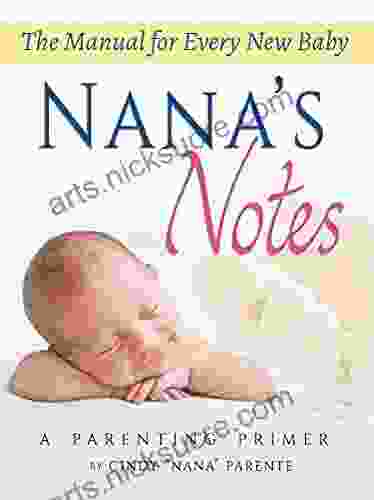
 Theodore MitchellThe Complete Guide for New Parents: Everything You Need to Know About Your...
Theodore MitchellThe Complete Guide for New Parents: Everything You Need to Know About Your... Michael ChabonFollow ·11.7k
Michael ChabonFollow ·11.7k Gabriel HayesFollow ·17.1k
Gabriel HayesFollow ·17.1k Carter HayesFollow ·17.1k
Carter HayesFollow ·17.1k Stuart BlairFollow ·11.9k
Stuart BlairFollow ·11.9k Paulo CoelhoFollow ·11.2k
Paulo CoelhoFollow ·11.2k Christian BarnesFollow ·13.8k
Christian BarnesFollow ·13.8k Edgar HayesFollow ·8.2k
Edgar HayesFollow ·8.2k Levi PowellFollow ·5k
Levi PowellFollow ·5k
 Cruz Simmons
Cruz SimmonsThe Ultimate Canadian Cookbook: A Culinary Exploration of...
Journey into the heart of Canadian cuisine...
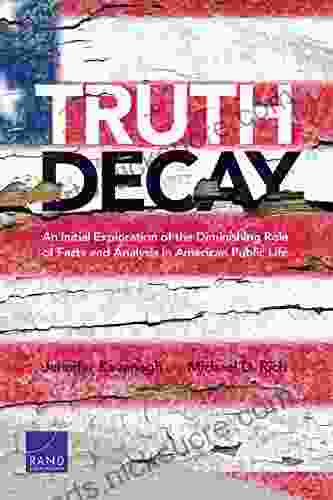
 Grayson Bell
Grayson BellAn Initial Exploration Of The Diminishing Role Of Facts...
When we think of the digital age, we often...
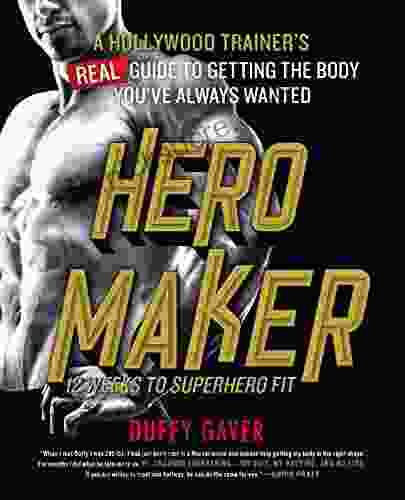
 Jayden Cox
Jayden CoxHollywood Trainer's Real Guide to Getting the Body You've...
Achieving a fit and...

 Octavio Paz
Octavio PazGood Walk Spoiled: An Exploration of the Effects of...
Dogs are often hailed...
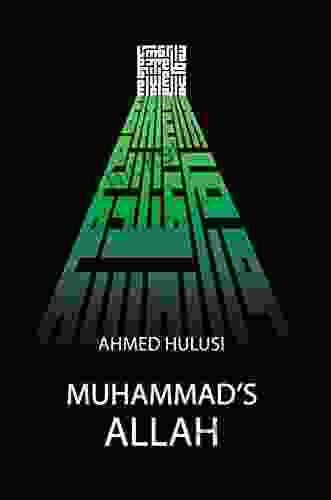
 Jerome Powell
Jerome PowellMuhammad Allah Ahmed Hulusi: A Visionary Scholar and...
Muhammad Allah Ahmed Hulusi...
4 out of 5
| Language | : | English |
| File size | : | 5038 KB |
| Text-to-Speech | : | Enabled |
| Screen Reader | : | Supported |
| Enhanced typesetting | : | Enabled |
| Word Wise | : | Enabled |
| Print length | : | 290 pages |


